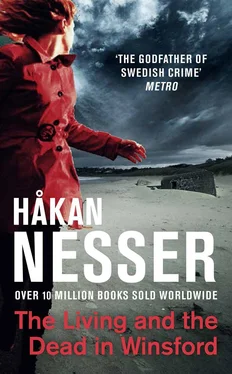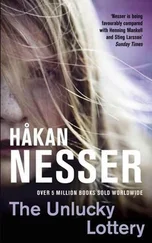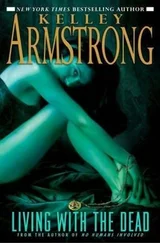Håkan Nesser - The Living and the Dead in Winsford
Здесь есть возможность читать онлайн «Håkan Nesser - The Living and the Dead in Winsford» весь текст электронной книги совершенно бесплатно (целиком полную версию без сокращений). В некоторых случаях можно слушать аудио, скачать через торрент в формате fb2 и присутствует краткое содержание. Год выпуска: 2013, Издательство: Mantle, Жанр: Криминальный детектив, на английском языке. Описание произведения, (предисловие) а так же отзывы посетителей доступны на портале библиотеки ЛибКат.
- Название:The Living and the Dead in Winsford
- Автор:
- Издательство:Mantle
- Жанр:
- Год:2013
- ISBN:нет данных
- Рейтинг книги:4 / 5. Голосов: 1
-
Избранное:Добавить в избранное
- Отзывы:
-
Ваша оценка:
- 80
- 1
- 2
- 3
- 4
- 5
The Living and the Dead in Winsford: краткое содержание, описание и аннотация
Предлагаем к чтению аннотацию, описание, краткое содержание или предисловие (зависит от того, что написал сам автор книги «The Living and the Dead in Winsford»). Если вы не нашли необходимую информацию о книге — напишите в комментариях, мы постараемся отыскать её.
The Living and the Dead in Winsford — читать онлайн бесплатно полную книгу (весь текст) целиком
Ниже представлен текст книги, разбитый по страницам. Система сохранения места последней прочитанной страницы, позволяет с удобством читать онлайн бесплатно книгу «The Living and the Dead in Winsford», без необходимости каждый раз заново искать на чём Вы остановились. Поставьте закладку, и сможете в любой момент перейти на страницу, на которой закончили чтение.
Интервал:
Закладка:
I asked if he was born on Exmoor, and he said he was. Not quite here in Winsford, but in Simonsbath, a bit higher up and more or less in the middle of the moor. He had moved away when he started at university, but came back ten years ago. As he worked with computers it didn’t matter where he lived: twenty years of city life and stress was quite enough for him, he maintained.
He said nothing about his family. Didn’t say if he had any children or had anything that could be described as ‘personal relationships’. I suspected he might be gay: he had precisely the frankness that heterosexual men usually lack. Even if he showed noticeably little interest in my circumstances.
I didn’t ask him about details, of course not, and while he was talking I gained the time I needed. I was able to decide how much of my own personal circumstances I was prepared to reveal.
Not very much, I concluded. And I stuck to that line.
Maria Anderson, a writer from Sweden. I think I even man-aged to convince him that I wrote under a pseudonym. I told him I was living just outside Winsford, but I didn’t go into precisely where.
What sort of books do you write? he wanted to know.
Novels.
No, I was not a well-known name, especially not outside Sweden. But I managed to keep going. I had been awarded some kind of scholarship for a year, and that was why I was here on Exmoor.
‘And you intend to write about the moor, do you?’
‘I think so.’
Then I asked him what he had meant by that reference to a shadow, an absent husband and a house in the south.
‘I can’t help it. I can see into people’s minds, that’s the basic truth of the matter. It’s always been the case.’
We’d had our glasses refilled. He had another dark beer, and I had a drop more red wine.
‘Interesting,’ I said, non-committally.
‘I’ve been able to do that ever since I was a child,’ he explained. ‘I knew my father had another woman long before my mother found out about it. I was eight then. I knew that my schoolmistress’s mother had died the moment I saw her walking across the schoolyard that winter morning. Five minutes before she came into the classroom and told us about it. And I knew. . No, I’d better stop. It’s pointless to keep providing proof. It doesn’t matter if you believe me or not.’
I nodded. ‘I’ve no reason to doubt you.’
‘And now you’re sitting there wondering what I have to say about the husband and the house, aren’t you?’ said Mr Britton, taking a swig of beer.
‘Once you’ve started you might as well go on,’ I said.
He laughed. Somewhat nervously, I thought — in any case it was the first time he’d done so during our conversation.
‘I don’t really have anything to go on about,’ he said. ‘I just get a fleeting image in my brain, and all I can do is describe what the image looked like. What it might mean is another matter altogether.’
‘And what exactly did you see in my case?’
He thought for a moment, no more. ‘I didn’t see a lot,’ he said. ‘At first a man, then a white house. . Bathed in strong sunlight — it looked as if it were somewhere in the south. The Mediterranean or North Africa, perhaps. Then came the shadow: it came from up above, and I had the impression that it was your shadow. Or that it had something to do with you at least. And it swept away the man. But the house remained standing. Anyway, that’s all — but it was pretty clear. I suppose “mist” is a better word than “fog” to describe it, by the way.’
I swallowed. ‘What did this man look like, did you notice any details?’
‘No. I saw him standing quite a long distance away. But he was rather elderly, not really old — about sixty or so.’
‘And you saw all this inside my mind?’
He adopted an apologetic expression. ‘Perhaps not quite — but it’s when I observe a face that images like these crop up, and that’s what I did.’
‘You observed my face?’
‘Every man between the ages of fifteen and ninety would want to observe your face. If he could. Do you think I’m being importunate?’
I wondered if I thought so. I concluded that I might have done in different circumstances, but now here we were in the local pub in Winsford in the county of Somerset, and with the exception of Mr Tawking this Mark Britton was the first person I’d spoken to for more than half a minute in over a week. No, it didn’t feel importunate, and I explained why.
‘Thank you. It’s lonely, being a writer, is it?’
‘It goes with the territory. If you can’t cope with loneliness you can’t devote yourself to writing.’
He shrugged, and suddenly looked a little sad.
‘I could be a great writer. If that’s the necessary criterion.’
That was of course an opportunity for me to ask questions about his private circumstances, but I desisted. Instead I extracted some practical information from him. Where I could find a launderette, for instance. Where I could buy firewood. Which was the best place to shop for food.
Mr Britton filled me in on these points and several more besides, and when we left the pub we thanked each other for an interesting conversation. He said he usually visited The Royal Oak Inn several times a week, and was looking forward to meeting me there again.
Then we shook hands and said goodbye. He went off up Halse Lane, Castor and I crossed over the road and walked down to the war memorial, where the car was parked. I realized that I had drunk two glasses of wine rather than the planned one, but I certainly had no intention of walking up to Darne Lodge in the dark. I could see no sign of Mark Britton on the road, and assumed he must have turned off into one of the narrow alleys you pass before coming up onto the moor itself.
I had left the bathroom light on, but that wasn’t visible from the road and I overshot the house by some fifty metres before realizing it. It was not exactly straightforward, backing along the narrow asphalt track, but I managed it. I made a mental note to buy some kind of outdoor lantern to hang on the gate-post, so that I would be able to find my way home in future.
Before I fell asleep — but quite a while after Castor had done so at the foot end of the bed — I made two decisions. I would wait for at least a week before setting foot again in The Royal Oak Inn, and the following day I would be sure to check the computers, both mine and Martin’s. Sixteen days had passed since we left Stockholm, so it was high time.
I would go to an internet cafe in Minehead — Mark Britton had said there were several there — and take a look at the e-mail inboxes. And if necessary answer any pressing messages. It would certainly not be a good thing if correspondents started checking up on where we were.
Certainly not.
10
After Synn’s birth I was stricken with something that was eventually diagnosed as post-natal depression.
I don’t know if that was the correct name for it, but if the two things coincide in time — the birth and the depression — I assume it must be. In any case, it meant that the relationship between myself and my daughter was disturbed from the very start. That important contact between mother and child that everybody talks about didn’t happen until several months later, and by then it was too late.
It wasn’t that I didn’t like my child. The fact was that I had no desire to go on living any longer. I could see no light at the end of the tunnel, and nothing seemed to have any point. Every day, during the weeks I was in hospital, I asked the nurses to bring my daughter to me: but as soon as I had been with her for a few minutes I started crying my eyes out. It was uncontrollable, and after I had fed her briefly they took her away again. I know that I cried more for Synn’s sake than for my own.
Читать дальшеИнтервал:
Закладка:
Похожие книги на «The Living and the Dead in Winsford»
Представляем Вашему вниманию похожие книги на «The Living and the Dead in Winsford» списком для выбора. Мы отобрали схожую по названию и смыслу литературу в надежде предоставить читателям больше вариантов отыскать новые, интересные, ещё непрочитанные произведения.
Обсуждение, отзывы о книге «The Living and the Dead in Winsford» и просто собственные мнения читателей. Оставьте ваши комментарии, напишите, что Вы думаете о произведении, его смысле или главных героях. Укажите что конкретно понравилось, а что нет, и почему Вы так считаете.












